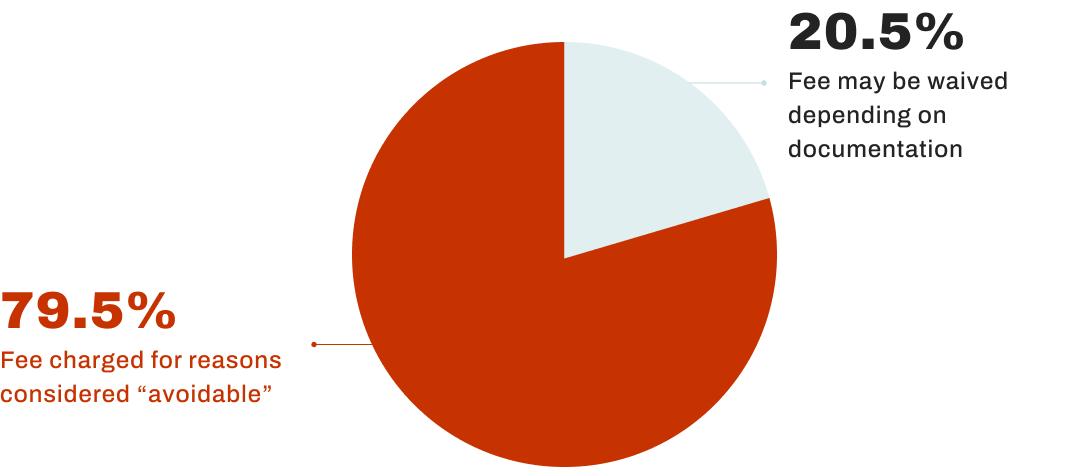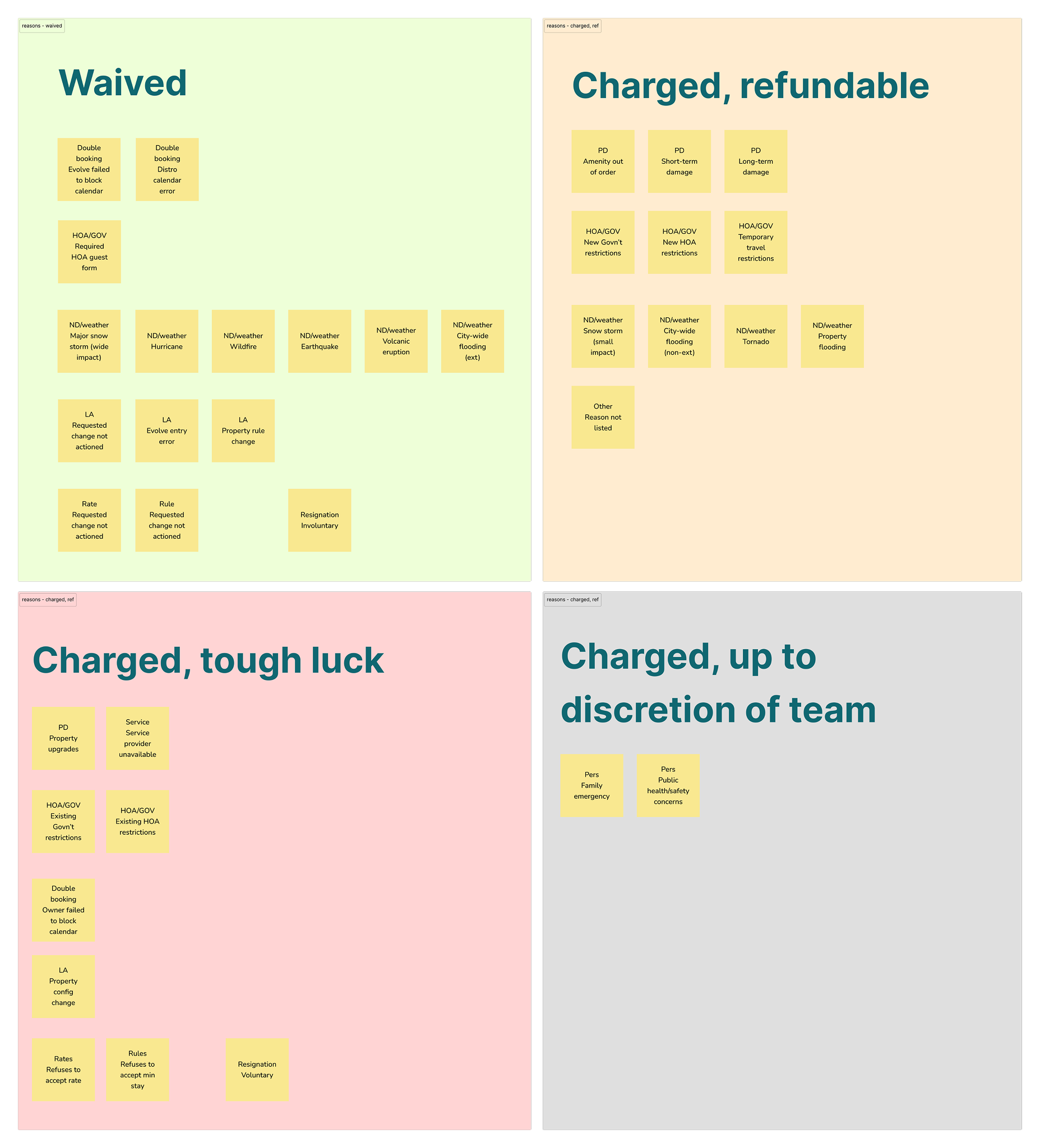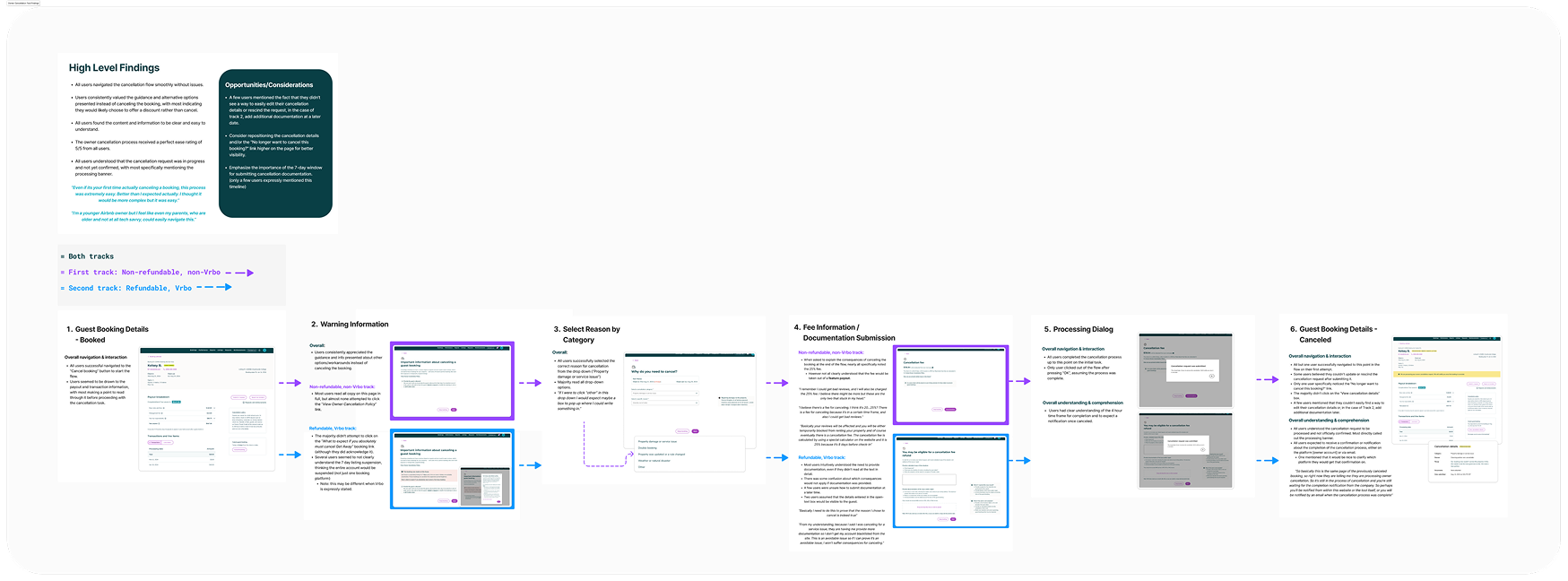Guided Self-Serve Cancellations Designed to Reduce Cost
Overview
Evolve is a vacation rental management company focused on delivering 5‑star guest experiences and management services for vacation rental owners. Most of Evolve’s owner users fall within the 45–64 age range and are distributed across the US.
Problem
In the vacation rental industry, homeowners often need the ability to cancel guest bookings quickly, whether due to maintenance issues, double bookings, or unexpected personal circumstances. At Evolve, however, the process was manual and cumbersome: owners had to submit a support request, call, or email to make a cancellation. Because cancellations are time-sensitive, this dependency on frontline teams frustrated owners and left guests with less time to adjust their travel plans. The lack of a self-serve option not only slowed resolution but also eroded trust in the platform’s ability to support both owners and guests in critical moments.
Solution
I designed a self-serve cancellation flow for the responsive web Owner Account experience. Since booking cancellation rules differ across distribution partners like Airbnb and Vrbo, the solution needed to balance clarity, guidance, and compliance. The final design combined step-by-step instructions, education, and document collection to simplify what had been a complex approval process. At the same time, I built in strategic content to help owners understand the impact cancellations have on their rental performance—encouraging fewer cancellations overall.
Impact
The new self-serve booking cancellation tool saw immediate adoption, with ~20% of the cancellations completed by owners in the first month. Our data dashboard revealed significant drop-off rates in each successive step or section. Drop-off was good in this case, signaling that owners were pausing to reconsider canceling after understanding the consequences. In other words, the tool not only enabled self-service but also successfully influenced behavior, helping reduce unnecessary cancellations.
Role
Lead designer
Team
1 PM, 1 Researcher, 1 Engineer
Timeline
1.5 mo
Platform
Responsive web
Process
- New UI/UX
- Wireframes
- Flow analysis, internal process audits
- Usability testing
The problem, in detail
Guest booking cancellations were inherently complex. Since Evolve owners’ properties were listed across multiple distribution partners like Airbnb and Vrbo, each with its own rules and penalties, owners faced varying requirements when canceling. Cancellation fees acted as a deterrent, discouraging owners from backing out of bookings since cancellations negatively impacted their performance, search ranking, and long-term guest satisfaction. At the same time, these penalties upheld trust and credibility on the platform by holding owners to consistent standards.
Fees were calculated based on how close the cancellation was to the guest’s check-in date and the reason for canceling, often amounting to a percentage of the total booking. In certain cases, owners could request a waive fee, but this required timely submission of specific documentation—adding another layer of complexity to the process.
How could I design a self-serve tool that made cancellations quick and intuitive, while also educating owners on the negative impacts—ultimately reducing cancellations altogether?
owner feedback
Users felt like they should be able to cancel guest bookings on their own. They were appreciative that frontline teams handled rebooking guests but were frustrated it took longer than expected.
Digging into the cancellation reasons for one year

Discovery
I took a step back to understand the current state of the cancellation approval process from the user and internal team perspectives.
- Collaborated with frontline team to update fee process: I reviewed all the cancellation reasons, grouped them into clearer categories, and updated outdated options so they better reflected whether a fee would actually apply.
- Audited partner cancellation rules: I documented the different cancellation rules and requirements from partner platforms like Airbnb and Vrbo. This helped define my content strategy for the tool and how I could simplify the instructions to best fit a majority of the rules.
- Communication & resources audit: I audited the communications and content owners received around cancellations (i.e. emails, help center articles), then simplified them with Marketing to make the process easier to follow.
- Wireframing & testing: I went through several iterations of wires, discussing variations with my PM and engineer, and refining based on the usability tests that were conducted with users. I also passed screens for feedback to the wider product org and design team.
Timeline
2 weeks
Participants
10 owners completed a usability test
Tools
Sprig
Re-grouping cancellation reasons took several iteration and a close collab with frontline teams

I created three variations of concepts, each with a different cancellation flow
Testing
I created a prototype, designing a hybrid solution based on the 3 variations of wireframes.
Overall, the cancellation flow performed well with users saying it was easy to use. All users successfully navigated the process and clearly understood that their request was in progress. They also consistently valued the alternative options, with most indicating a preference for offering a discount instead of canceling.

Solution
Based on the test findings, I put a bigger spotlight on solutions that help owners preserve guest bookings, like offering a discount to a guest for an inconvenience. I also simplified the whole process by trimming down the amount of text on screen and linking to our Help Center and other resources.
What impact did we have?
The new self-serve booking cancellation tool saw immediate adoption, with ~20% of the cancellations completed by owners in the first month. Our data dashboard revealed significant drop-off rates in each successive step, which my team saw as a success—we were successfully deterring the user from canceling with appropriately placed education and tips.